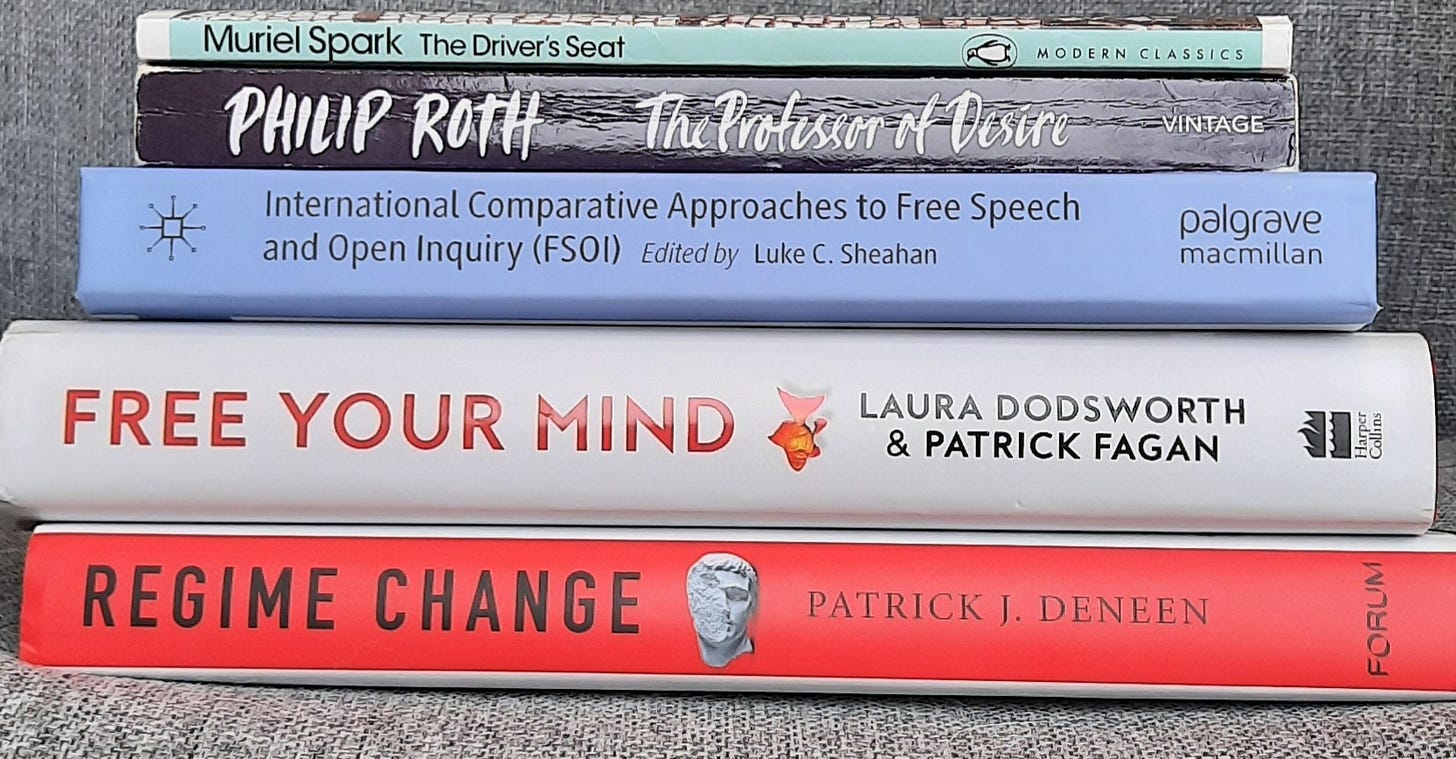I began this month by reading Free Your Mind by Laura Dodsworth and Patrick Fagan. This book expands upon the valuable insights Dodsworth’s previous book, A State of Fear, shed on the misuse of ‘nudge’ policies to manipulate our thinking and change our behaviour during the Covid-19 pandemic. Free Your Mind covers broader terrain and looks at how advertisers, the media, educators, a whole host of policy makers, and even our family and friends are trying to influence our thinking and actions. Dodsworth and Fagan do a brilliant job of exposing the nudgers’ tricks and showing how we can become more resilient to such manipulation. This is vitally important: we need to be aware of how even seemingly trivial attempts to change language - for example, referring to ‘global heating’ rather than ‘climate change’ or ‘gender’ when we really mean ‘sex’ - can come to shape our thinking.
My one concern is that I think nudge is primarily a political rather than a psychological problem. This means that the anti-democratic nature of nudging - which Dodsworth and Fagan correctly identify - is best tackled through political solidarity rather than (or perhaps as well as) us each learning individual psychological preventative tactics. The danger of perceiving everything and everyone as being out to influence us in some way is that our suspicion of others, and therefore our atomisation, is exacerbated. In the same way, not watching the news or engaging with social media will ensure we are not manipulated but it also risks leaving us politically disengaged and cut off from potential allies.
I next read Regime Change, Towards A Post-Liberal Future by Patrick J. Deneen. Again, I found much to agree with. The history of conservative thought that Deneen presents, and particularly the insight that what is being ‘conserved’ necessarily changes in each historical era, is compelling. So too is his presentation of the tensions between a liberal, even libertarian conservatism on the one hand, and a more robust, interventionist approach to conserving traditional values associated with family, faith, community and nation on the other. Deneen explores how a footloose, managerial elite has developed with liberal values that are not just distinct from but actively opposed to the values held by working class communities.
I agreed with all of this but then struggled with Deneen’s conclusion - that what’s needed is a new ‘aristopopulist’ elite, that emerges from and is grounded within the working class. His claim is tha rather than acting against the best interests of the working class, the new elite will seek to enact and reinforce the wishes and values of the populace. My disagreement is why this needs the creation of a new elite - or, initially at least, a change in the existing elite. It seems to me that ‘aristocracy’ and ‘populism’ are complete opposites - which I get is Deneen’s point in coining the phrase - but ultimately we have to come down on one side or the other: the elite or the masses. I think there needs to be more emphasis on democracy, and giving true expression to the will of the people, rather than on creating a new and potentially unaccountable aristocracy, no matter how grounded within the working class.
International Approaches to Free Speech and Open Inquiry edited by Luke C. Sheahan is a useful collection of essays that sums up the dire state of free speech around the world today. The book features authors from the UK, the US, Canada, Hong Kong and Australia. The bad news is that all the same trends - cancel culture, self-censorship, attacks on academic freedom and press freedom, the introduction of hate speech laws - are happening everywhere. These essays explore why - the changing role of universities; the increasing perception of people as psychologically vulnerable and the privileging of emotional safety; a tendency for political conformity - and offer some way forward. Beyond technical or legal interventions, and the case for dialogue and compromise, there is a clear need for intellectual and moral courage.
August also meant time for fiction! I loved the The Professor of Desire by Philip Roth, the story of a life told through sexual misadventure. Only in Roth’s hands could this romp be both hilarious and moving. The Driver’s Seat by Muriel Spark is a short book, more of a novella, but lives on in your imagination long after you’ve finished reading. The key question - which it is hard to imagine any novelist writing today having the courage to pose - is the extent to which the victim of a crime can be responsible for what befalls them. This is a brilliant and highly original quick read and I highly recommend it. Finally, I also enjoyed Shooting Martha by David Thewlis even though the premise is completely bonkers. A director struggling to produce an autobiographical film while grieving the loss of his wife, casts an actress to play her - not on screen, but at home. This book is very funny. I’m just not sure if it is always intentionally so.
Subscribers might know that earlier this year I spoke at events organised by the Society for Academic Freedom and Scholarship in Canada. One talk was prevented from being held at the London Public Library in Ontaria. Films of the speeches I made have now been released. Watch Academic freedom and the problem with the truth and Sex, gender, and the limits of free speech on campus.



I thoroughly recommend this fellow: www.john-guthie-author.com
Of special interest are State and Guardians. :-)